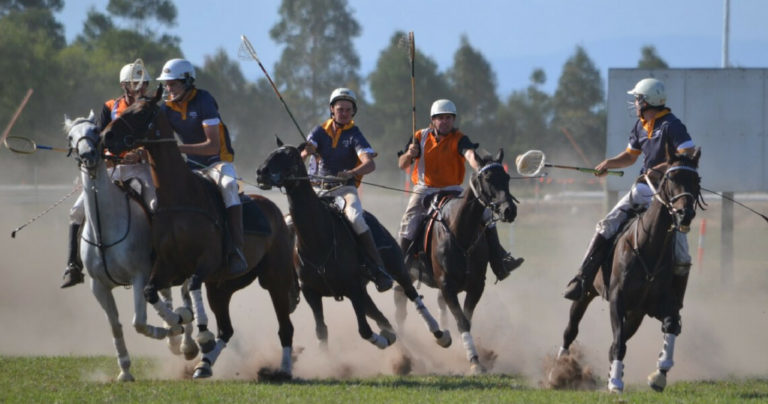
In the lead-up to the 25th Australian Polocrosse National Championships, Cavalletti gets a glimpse into the realities of the training and long-haul travel involved in participating in this “one-horse” sport.
Polocrosse. It’s a combination of polo and lacrosse with the spirit of an AFL footy match. It’s also the answer for anyone who claims that equestrian is an elitist sport – get them immediately to an Australian polocrosse tournament and let the game speak for itself.
A team sport with Australian origins, polocrosse is played fast and hard with only one horse per player. Each team consists of six players, divided into two sections of three who play alternate chukkas. Polocrosse is exciting to watch and even more exciting to play, demanding all-encompassing passion and commitment – many players learn the game as kids and maintain involvement in the sport for life.
Such was the path for Steven Boulton, who besides being a long-time player and coach, was also awarded the Polocrosse Association of Australia Coach of the Year title in 2015. Steven grew up on a dairy farm in regional Victoria and said he was keen to get into polocrosse initially because the distances he needed to travel for tournaments necessitated days off school! His dad and uncle both played, so one day Steven just took his place in the horse truck alongside them and got his first start in the team.
Steven still travels thousands of kilometres to compete in polocrosse, with this interview taking place by telephone as he was on the way to Warwick, Queensland for the Barastoc series. He’d started his journey at 6am and was set to stop at Gundagai for a quick break, before camping overnight at Coonabarabran.
According to Steven and his travelling companion – fellow polocrosse player Zach Vines – the overnight stopovers are an important part of keeping the horses healthy during a long journey. A bit of exercise and some time to stretch in the yards help prevent the horses from suffering any muscle metabolism issues while travelling.
This is the same travel strategy they will be adopting for the journey to the 25th Australian Polocrosse National Championships, which will be held in Albury, New South Wales, from 18 – 24 April. Zach will be playing in the Victorian Under 21s team, which is coached by Steven (who also will be playing in the Victorian Open Mens team).
They will join 400 other players from 42 Australian teams in pilgrimaging across the countryside to the Albury Wodonga Equestrian Centre. This is a huge undertaking, with the journey to Albury set to take weeks for competitors travelling from Western Australia and the Northern Territory. The event is held every two years, played on a rotational basis around the seven States and Territories.
Steven explained that travelling is hard on the horses, especially over long distances. In his worst case scenario you could end up with a horse suffering from travel sickness or travelling injuries.
Any injury or illness would be devastating after all the preparation involved in being selected for a place on a State team. As Steven explained, the players all have full-time jobs or studies so it takes a lot of commitment to “step it up” for national competition.
“The prep for Zach and the guys in my under 21s team involves getting the horses fit and having everything right,” Steven said. “There is a much higher standard of competition than at club level so the horses have to be much fitter. The boys should be riding every day, with 7-10 kilometres being covered, as well as lots of racquet work”.
While winning is something everyone aspires to, Steven warned that if you head into an event like the Nationals with only that in mind, you’ve got the wrong attitude.
“Go there with the attitude that you’ll be competitive and something might come from that. You’ll get bitterly disappointed if you go there only focussing on winning. You really just want everyone to play to the best of their ability and for the horses to go well,” he explained.
Steven said the most competitive players are those that are determined, with the desire to learn and improve.
“You have to have a will to get better, as well as have good hand and eye coordination. Also, being able to ride helps,” he joked. Steven said that while most people get started in the sport as competent riders, there are players who got into it without horse riding experience, and picked up both the game and riding skills at the same time.
“You can definitely just play to have fun at the lower levels,” Steven added. “Polocrosse is a sport for all ages and abilities.”
With over 4,000 players registered in 135 clubs, Australia has the largest polocrosse contingent in the world. Find your local club and catch up with all the latest polocrosse news, including event details for the 25th Australian Polocrosse National Championships, at www.polocrosse.org.au






